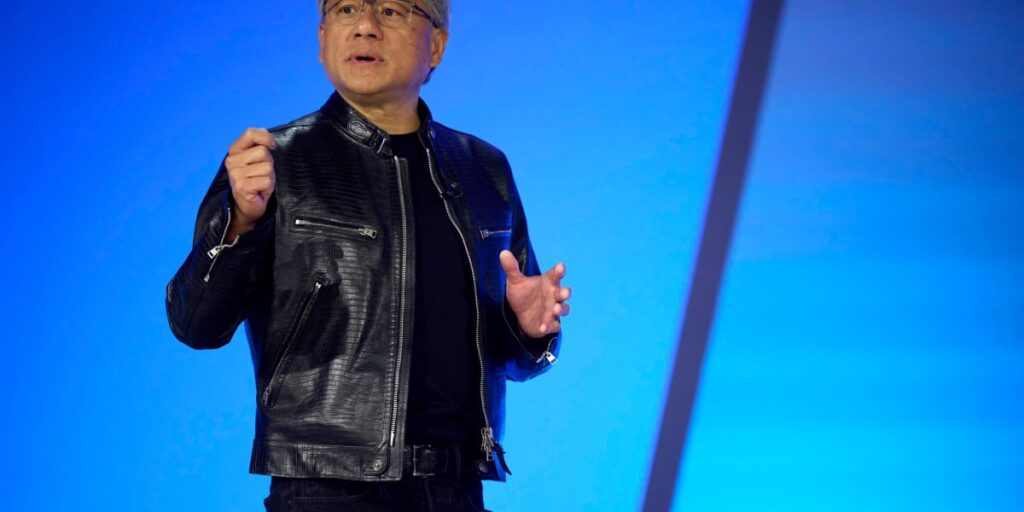
Nvidia Corp. shares fell on Monday as the artificial intelligence-focused chipmaker entered correction territory, extending a recent sharp selloff.
The stock fell 4.8% and is on track for a third straight negative session. Over a three-day period, it fell 12%, breaking the 10% threshold that constitutes a correction. The drop weighed on chipmakers, with the Philadelphia Stock Exchange semiconductor index falling 2.2% on Monday. Shares of Broadcom Inc., Taiwan Semiconductor Manufacturing Co. and Qualcomm Inc. decreased by at least 2%.
The three-day drop wiped more than $400 billion off Nvidia’s market capitalization, leaving it below the $3 trillion threshold and below both Microsoft Corp. and Apple Inc. in size. Nvidia briefly stated title of the world’s largest stock last week.
“In the short term, it is likely that investors will begin to suffer from AI fatigue or become more concerned about index concentration,” said Neville Jhaveri, portfolio manager and head of the Empiric LT Equity team at Allspring Global Investments.
Even with the downturn, Nvidia shares are still up more than 140% this year, making it the second best-performing S&P 500 component behind Super Micro Computer Inc., another artificial intelligence darling.
The stock fell about 20% earlier this year, although it quickly returned to all-time highs.
While investors have flocked to Nvidia given sky-high demand for its chips used in artificial intelligence processing, the scale of Nvidia’s growth (it’s also up about 240% through 2023) has highlighted concerns about its valuation. The stock is trading at nearly 23 times estimated sales over the next 12 months, making it the most expensive in the S&P 500 by this metric. However, he is still beloved on Wall Street. Nearly 90% of analysts tracked by Bloomberg rate the stock a buy, and the average analyst price target indicates upside potential of about 10% from current levels.
“The momentum in Nvidia and AI stocks overall is stunning,” said Charlie Ashley, portfolio manager at Catalyst Funds. “In terms of investment, I wouldn’t be against it now.”


